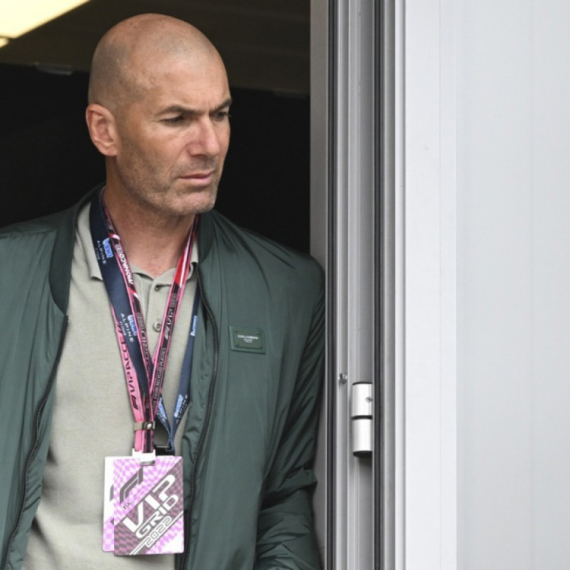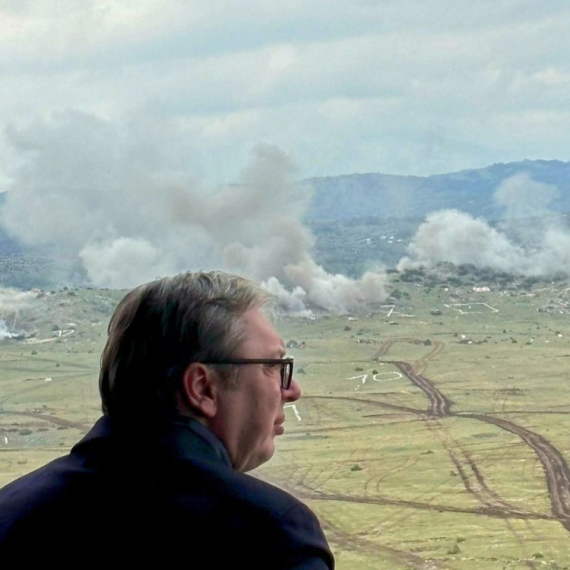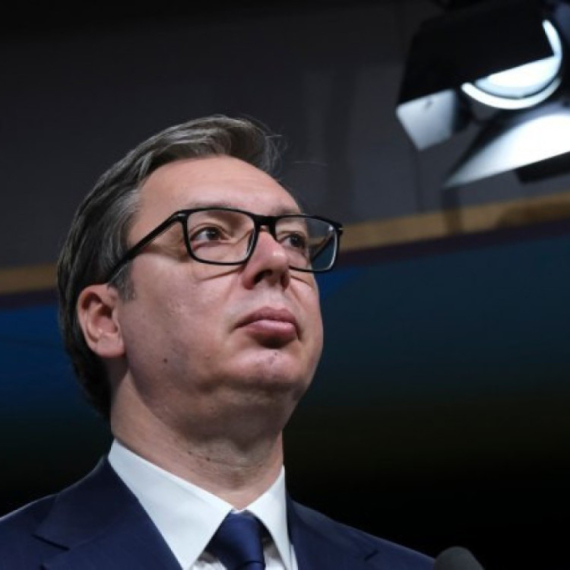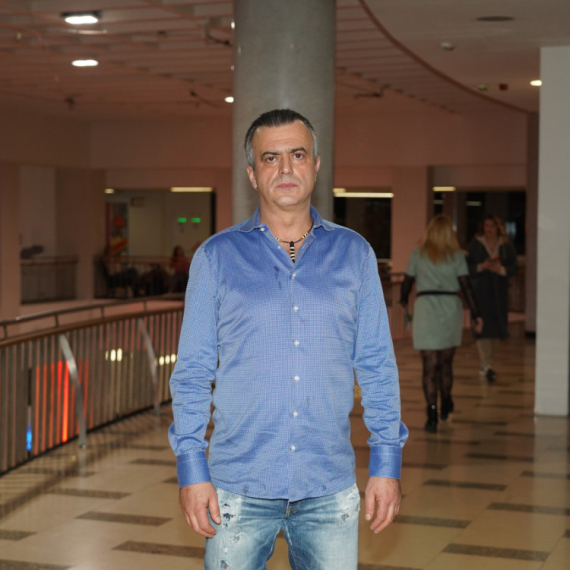"Govt. has clear plan for overcoming crisis"
After discussing a set of financial laws on Wednesday, the Serbian parliament today started the debate on the proposal on a rebalancing of the 2012 budget.
Thursday, 20.09.2012.
10:50

BELGRADE After discussing a set of financial laws on Wednesday, the Serbian parliament today started the debate on the proposal on a rebalancing of the 2012 budget. The Serbian government has a clear plan for overcoming the crisis - a precise combination of spending cuts and measures to stimulate production which will keep the public debt from growing further and reduce the budget deficit, Minister of Finance and Economy Mladjan Dinkic said on Thursday. "Govt. has clear plan for overcoming crisis" The plan is to cut the budget deficit in half to 3.5 percent of the GDP in 2013, and under a realistic scenario, the public debt will stop growing in 2014 and start dropping in 2015, said Dinkic. He said that in the next months, along with the 2013 budget bill, the parliament would receive a package of medium-term measures and structural reforms aimed at bringing down the budget deficit and preventing the public debt from rising further. Presenting to the parliament the budget balancing bill and a set of accompanying legislation which is part of a wider fiscal consolidation package, Dinkic noted that the government had no intention of stopping its efforts to reduce the budget deficit and that the goal was to bring it down to 1.9 percent of the GDP in 2014. The minister also talked about plans to reform the labor market and the public sector, discourage early retirement, improve industrial policy, invest in agriculture, the food industry, energy and infrastructure, the defense industry and mining. Under the 2012 budget balancing bill, the expected revenue totals RSD 829.6 billion and planned spending RSD 1,033.2 billion, while the deficit is expected to reach RSD 203.6 billion or 6.2 percent of the GDP. Of the RSD 829.6 billion in revenue, RSD 700.6 billion or 84.5 percent will come from taxes, while RSD 127.35 billion or 15.4 will come from other sources. Donations account for RSD 1.6 billion or 0.2 percent of the total budget revenue. Budget revenue should grow by RSD 7.8 billion thanks to the VAT rate increase from 18 to 20 percent, while higher excise taxes on oil derivatives should bring in an additional RSD 2.8 billion and taxes on cigarettes RSD 4 billion. MPs will also consider drafts proposing changes to the Budget System Law, and those concerning pension and disability system, as well as highest salaries in the public sector. Opposition LDP party leader Cedomir Jovanovic - a vocal critic of the government's proposed budget review - said his party would submit amendments during the debate, even though they previously announced they would not. But submitting amendments "creates space for a discussion", Jovanovic told the public broadcaster RTS. "The rebalancing is a redistribution of the money we don't have, and that's a consequence of the wrong policy that needs to be changed," he asserted, accusing at the same time the ruling coalition of continuing the previous policy. He added that his party wished to know the answer to the question what caused "Serbia's ruin". More questions that the party is interested in learning the answers to include "why the economy is so bad, why we are the poorest, with the highest unemployment and inflation rates, why we are facing bankruptcy". On Wednesday, the debate saw Economy Minister Mladjan Dinkic state that money from the Environment Protection Fund was spent "inappropriately", which sparked a debate with former Environment Minister, now opposition DS party MP Oliver Dulic, who rejected these accusations. Dinkic claimed that more than 80 percent of the money allocated to this fund was spent on financing the election campaign of the Democratic Party (DS). Mladjan Dinkic addresses MPs on Thursday in Belgrade (Tanjug) Beta Tanjug
"Govt. has clear plan for overcoming crisis"
The plan is to cut the budget deficit in half to 3.5 percent of the GDP in 2013, and under a realistic scenario, the public debt will stop growing in 2014 and start dropping in 2015, said Dinkić.He said that in the next months, along with the 2013 budget bill, the parliament would receive a package of medium-term measures and structural reforms aimed at bringing down the budget deficit and preventing the public debt from rising further.
Presenting to the parliament the budget balancing bill and a set of accompanying legislation which is part of a wider fiscal consolidation package, Dinkić noted that the government had no intention of stopping its efforts to reduce the budget deficit and that the goal was to bring it down to 1.9 percent of the GDP in 2014.
The minister also talked about plans to reform the labor market and the public sector, discourage early retirement, improve industrial policy, invest in agriculture, the food industry, energy and infrastructure, the defense industry and mining.
Under the 2012 budget balancing bill, the expected revenue totals RSD 829.6 billion and planned spending RSD 1,033.2 billion, while the deficit is expected to reach RSD 203.6 billion or 6.2 percent of the GDP.
Of the RSD 829.6 billion in revenue, RSD 700.6 billion or 84.5 percent will come from taxes, while RSD 127.35 billion or 15.4 will come from other sources.
Donations account for RSD 1.6 billion or 0.2 percent of the total budget revenue.
Budget revenue should grow by RSD 7.8 billion thanks to the VAT rate increase from 18 to 20 percent, while higher excise taxes on oil derivatives should bring in an additional RSD 2.8 billion and taxes on cigarettes RSD 4 billion.
MPs will also consider drafts proposing changes to the Budget System Law, and those concerning pension and disability system, as well as highest salaries in the public sector.
Opposition LDP party leader Čedomir Jovanović - a vocal critic of the government's proposed budget review - said his party would submit amendments during the debate, even though they previously announced they would not.
But submitting amendments "creates space for a discussion", Jovanović told the public broadcaster RTS.
"The rebalancing is a redistribution of the money we don't have, and that's a consequence of the wrong policy that needs to be changed," he asserted, accusing at the same time the ruling coalition of continuing the previous policy.
He added that his party wished to know the answer to the question what caused "Serbia's ruin".
More questions that the party is interested in learning the answers to include "why the economy is so bad, why we are the poorest, with the highest unemployment and inflation rates, why we are facing bankruptcy".
On Wednesday, the debate saw Economy Minister Mlađan Dinkić state that money from the Environment Protection Fund was spent "inappropriately", which sparked a debate with former Environment Minister, now opposition DS party MP Oliver Dulić, who rejected these accusations.
Dinkić claimed that more than 80 percent of the money allocated to this fund was spent on financing the election campaign of the Democratic Party (DS).
















































Komentari 4
Pogledaj komentare